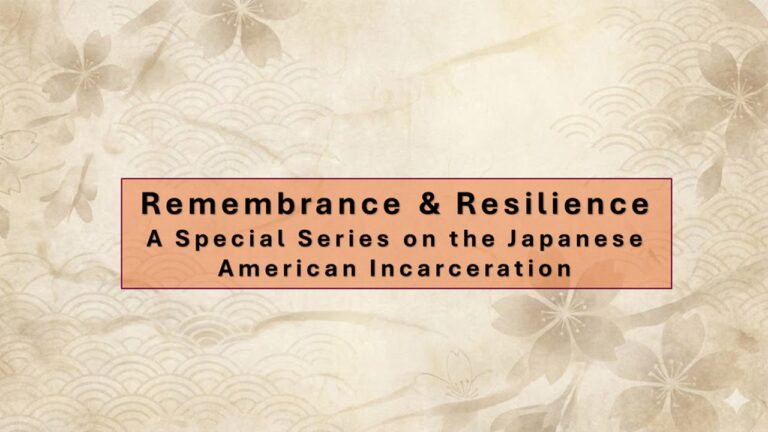National Association for the Practice of Anthropology
sNAPAshots: Mohini Mehta

This work is licensed under a Creative Commons Attribution-NonCommercial-ShareAlike 4.0 International License.
0:10
[On Screen Text – Scrolling] sNAPAshots
Interviewer 0:10
Welcome back to season two of sNAPAshots. Let’s meet Mohini Mehta.
0:15
[On Screen Text] sNAPAshots Conversations with Practicing, Professional, and Applied Anthropologists
Mohini Mehta 0:17
I’m Mohini Mehta. I’m currently doing my PhD in the Department of Sociology at Uppsala University. I identify myself as a social anthropologist, my pronouns are she, her and my sub discipline or sub field of study is Food Anthropology.
Interviewer 0:36
How did you get interested in anthropology?
Mohini Mehta 0:39
I was working on a government funded project back in Delhi, which was around finding solutions for the homeless population in Delhi. And I wanted to personally focus on providing affordable menstrual hygiene solution for the women residents. And in my entire quest of actually working towards finding those solutions, I realized that there is a sheer amount of neglect and apathy not only among policymakers, but also among the civil society members. And there’s definitely a lot of stigma attached to it. And I know a watershed moment for me was when I was giving my presentation, one of the colleagues said that this is kind of unprofessional, because this is too feminist and this focuses a lot on women’s issues. So that was a time when I learned what it means to be working on sociocultural issues. It taught me a very important lesson of contextualization and what exactly it means to work with multiple narratives and multiple realities. But I think I would say most importantly, it taught me how to be in the field.
Interviewer 1:42
How has the anthropological perspective or training enhanced your contribution to your workplace?
Mohini Mehta 1:47
How having an anthropological perspective, and as I would like to call like, you know, the ontological attitude towards things, I feel it’s very important, because, I mean, you need to really understand the different entrenched realities and standpoints if you have to work with people. So I’ve been a communications manager when I was working in development sector. And one of my tasks was to bring out the stories of change for the organization I used to work and the impact they have created. And my sole focus was not only to create a very flowery narrative, but I did definitely look into how exactly do we determine impact. And I think this is one of the few anthropological things we learned that, you know, not everything is there in America, you don’t see it as like, if an increase in income or an increase or change in lifestyle, it also means about, like, you know, what it means to add agency of a person what it means to like, you know, and the entire social well being of a person, how does it change the matrix of standpoint for different people?
Interviewer 2:48
What advice would you like to pass on to future anthropologist seeking roles in professional fields?
Mohini Mehta 2:53
Do not only think of your academic interviewees as being extremely professional, I think you do end up having a lot more beautiful experiences. And like, you know, it’s not a very black and white thing, it’s not that you’re going to make relations which are going to taint your research, which is a big problem, like, you know, we always think in binary of the fact that, okay, it is not ethical, that you know, you’re making friends with people, because you’re only there to research. The idea is to understand that there are human connections. And even if you are not…you need to treat fellow humans as human beings that you know, whom you would like to talk to who might want to offer you food while you’re talking. Who want to understand that, understand all of these things in terms of human interactions, that is the core essence of anthropology. It’s not about like, you know, you’re sitting with your pen and paper and noting down all the details of what they’re doing. It’s about how do you also interact in that space?
Interviewer 3:44
What is your superpower as an anthropologist,
Mohini Mehta 3:47
I would say, it is just a general, a very strong curiosity to be knowing about different cultures, and to not appropriate them, but appreciate them to the best way possible. So I am a huge language nerd. I love learning new languages, and I try practicing them with people as much as I can. And I pick up a lot, I watch a lot of popular media around different things. So like, you know, I would know, the randomest of facts, like really random facts from different cultures and stuff. I make efforts to learn about people’s food habits, cultural habits, religious habits, and then like, you know, I like to talk about…and bring them up in the conversation. So, I mean, I mean, like, you know, I just realized that, you know, when you have to talk to people, you need to have certain common points to talk to them about and you have to make them comfortable.
Interviewer 4:37
What is the anthropological background of your early life?
Mohini Mehta 4:42
For me, definitely, it was growing up with the oral narratives of Partition. So it was I think it was a great experience because like, you know, I mean, my grandma would always sit me down and would tell me different stories. And, of course, there were a lot of painful memories of what happened when they were coming from Pakistan to India and the kind of bloodshed and annhillation they saw, which was very painful. But apart from that they were also very good mentions of everyday life. So I think that is something we often forget that, you know, when people talk about a very watershed experience or a traumatic experience, it’s not only the trauma they talk about, we also talk about what seemingly is the normalcy which preceded that disruption, which is, I think, which is also the very basis of like, understanding narratives. So I mean, that was a time when I actually got to live and relive in that time, I got to relive in that moment when I was not even present. And I got to know about like, you know, how the houses look like, what kind of relation my grandma had with her friends, and the kind of jealousy they had against my grandma and like, you know, how my grandma would do a lot of things in spite and how my grandfather tasted the chocolate for the first time when he was studying in Bhutan. And you know, a lot of these beautiful things. So my grandfather had great cartography skills, and he wants to do an entire map of the region which he belongs to. So he comes from the GLM region, in Pakistan. And you do this map, which showed like, you know, which basically started with my grandmother’s village and it ended in the city where my grandfather used to live. So for me living through those cartographies and those geographies I had not visited I did not even know if I would ever get the chance to visit was reliving a lot of life they spoke about and the life they have left behind. And that is what I realized, these stories of Partition did into me, they basically recreated that entire life, which I was not privy to, and like, you know, I did not know and I think that was a time, which that was a moment which gave me this entire interest into stories and interested in delving deeper into histories.
Interviewer 6:56
Thank you, Mohini for sharing your experience as a practicing food anthropologist. For more on sNAPAshots, find us at PracticingAnthropology.org Mehta, LinkedIn and Twitter. Save the date join Napa at the careers expo November 10 2023, in Toronto, Canada. See you there.
Credits 7:16
[On Screen Text] PRODUCED BY Niel Tashima, Cathleen Crain, Joshua Liggett
DIRECTED BY Reshama Damle Suanna Crowley
MUSIC BY qlowdy “Sunset”
CREATIVE LEAD Mikaela Williams
Many Thanks to NAPA’s Governing Council for supporting sNAPAshots Conversations with Practicing, Professional, and Applied Anthropologists NAPA is a section of the American Anthropological Association
Join us in person at the Careers Expo in Toronto, CA November 10 2023!
NAPA is seeking volunteers to join the sNAPAshots project. We’d love to hear from YOU! Contact us at: ntashima@ ltgassociates.com
Mohini Mehta 7:16
[Outtakes] Finally, I have been raised by a strong feminist mother who comes from like, you know, those second wave ideas of feminism and according to her like you know, being in the kitchen was definitely not something which like, you know, women must be doing so she always discouraged me to be in the kitchen. And ironically I love being in the kitchen. I think she still has issues accepting the fact that you know that I mean, I work so much I think she only agrees to me working in the kitchen because she knows I made a profession out of it.
Interviewer 7:53
sNAPAshots
Transcribed by https://otter.ai



![[NAPA Logo] sNAPAshots: Conversations with Professional, Practicing, and Applied Anthropologists. Rosalie Post, Design Anthropologist, Co-founder of NAMLA. PracticingAnthropology.org Bluesky, X, Meta, LinkedIn, and Youtube Logos](https://practicinganthropology.org/wp-content/uploads/Rosalie-Post-LinkedIn-Flyer-768x768.jpg)